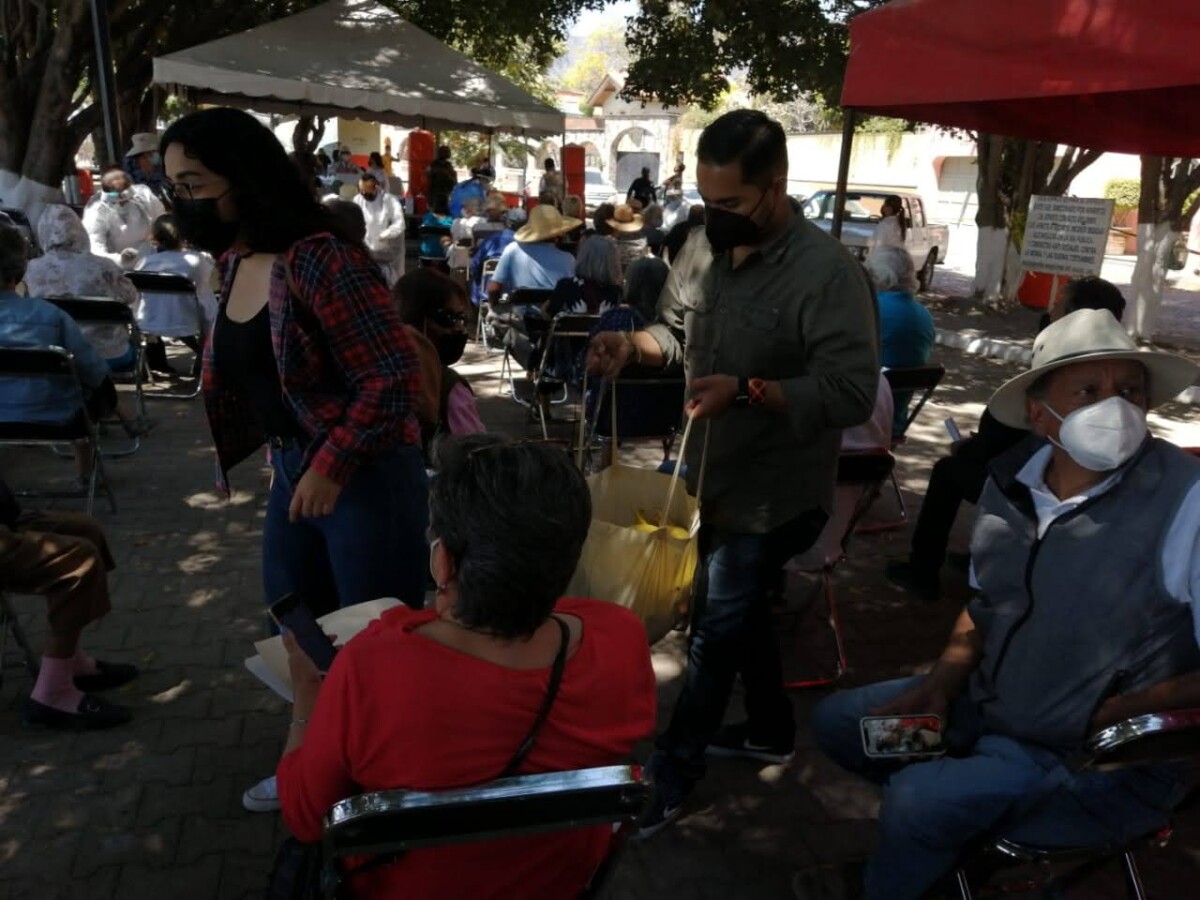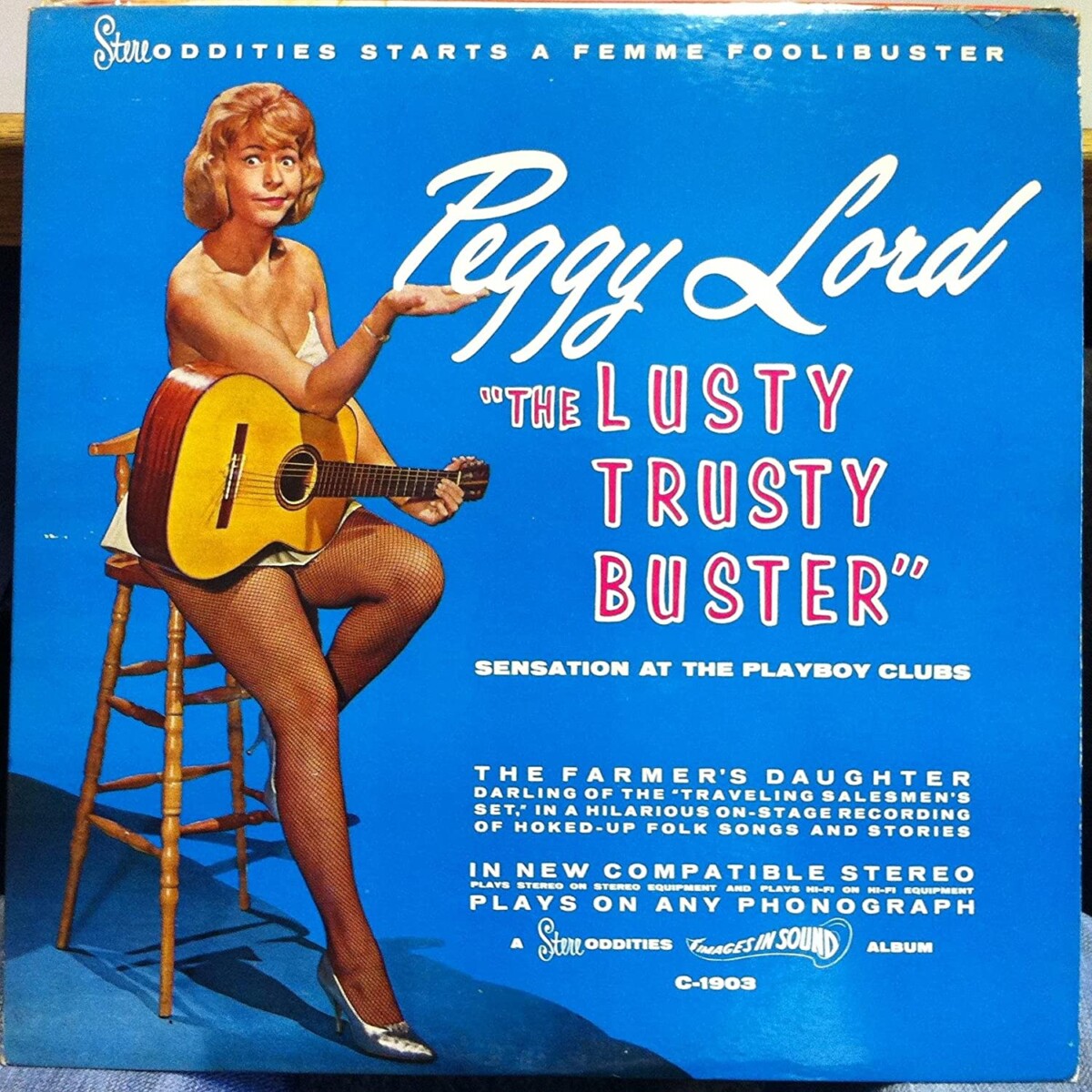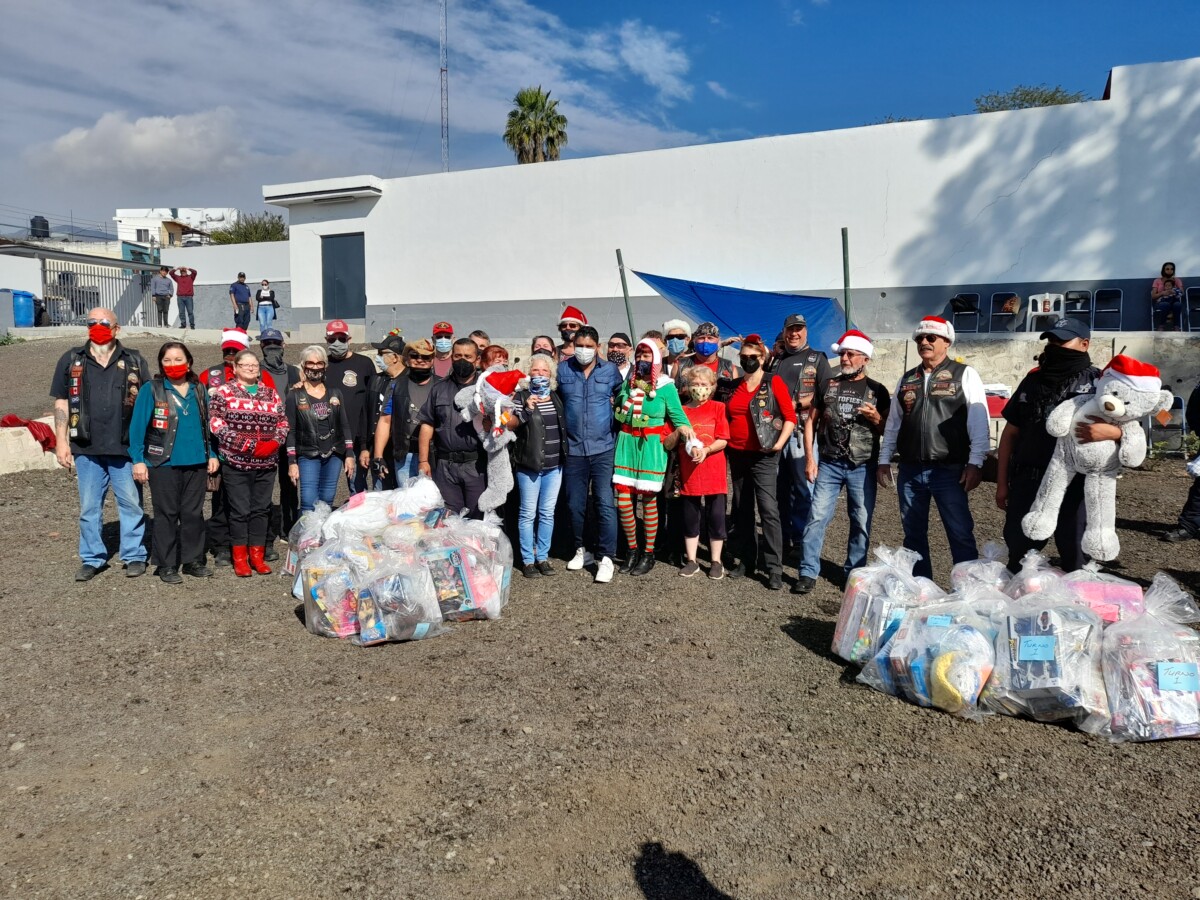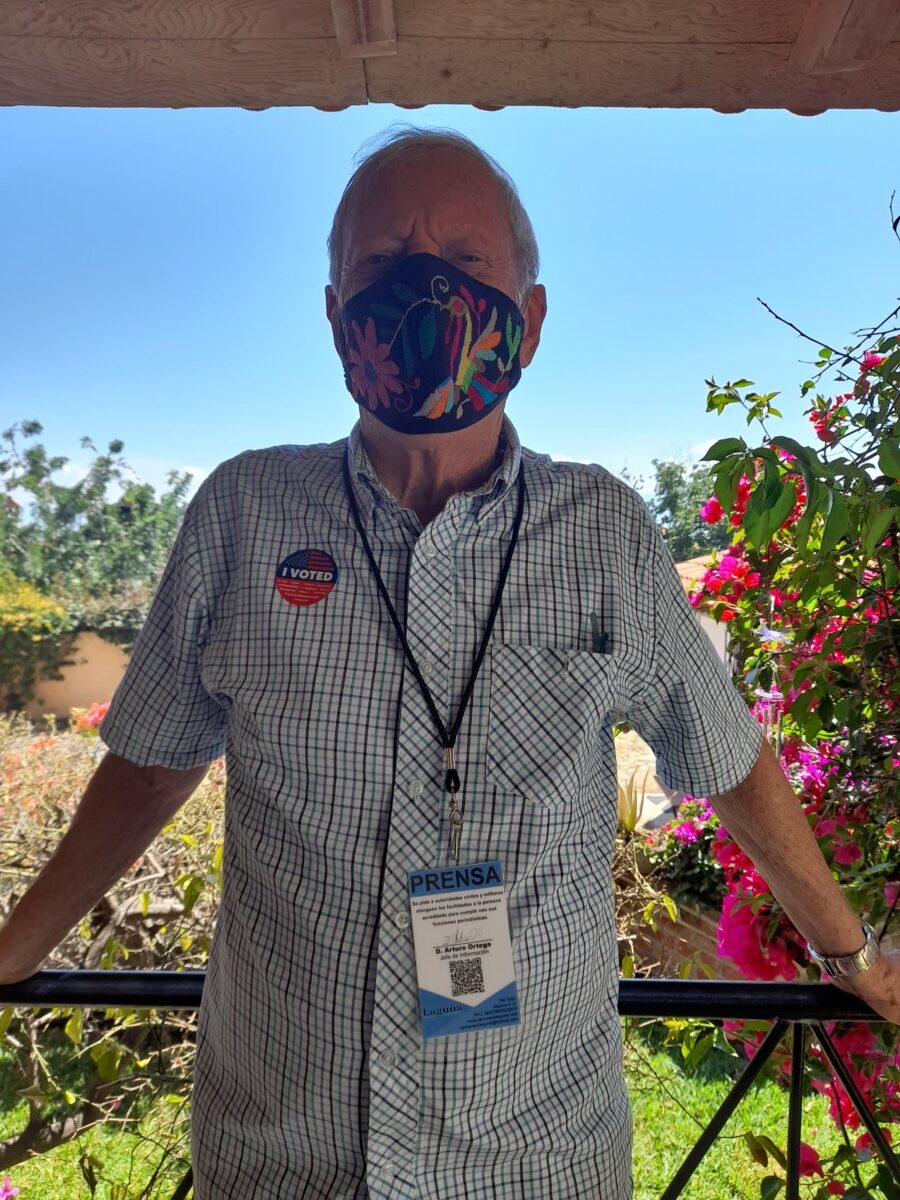people
Mariana Macias will seek the Miss Grand International 2021 crown in Thailand
Miss Grand México 2021, Mariana Macías from San Antonio Tlayacapan will face a new challenge in the beauty pageant crunways.
Editorial staff.- With the crown of Miss Grand México 2021, Mariana Macías from San Antonio Tlayacapan will face a new challenge in the beauty pageant crunways. She will represent Chapala and México in the ninth edition of the Miss Grand International 2021 pageant to be held from November 16th to December 5th.
In a local interview, Mariana said it would be Mexico’s first time participating in the Miss Grand International pageant. She has begun to research the host country, as well as increasing her skills in public speaking, runway modeling, and physical exercise, among other disciplines as she prepares to head to Thailand.
If she qualifies and triumphs in the distinguished beauty pageant’s December 4th final, the former Miss Jalisco 2019 pledged she would work on her range of activities that include trips to different countries. If she doesn’t win the crown, she believes she already feels like a winner since she has achieved a tremendous level of self confidence.
Translated by Sydney Metrick
Ajijitecos unite to assist seniors in vaccination campaign
On Thursday Ramón Cevi and a group of volunteers handed out water, popsicles and fruit.
Sofía Medeles (Ajijic, Jal.) – During the vaccination campaign against COVID-19, the long lines left many elderly people in the hot sun for hours, but the people of Ajijic recognized the problem and stepped up to help the elderly in any way they could to ease their wait in line.
One way they assisted the waiting seniors was to help them assemble the necessary documents and copies,( copy of INE, proof of address, CURP and registration folio), a common request. So teachers and students of the Center for Technological Studies in Continental Waters (CETAC) borrowed the facilities of the Virtual Library in the «Parque de la amistad» to install computer equipment and printers to complete the needed paperwork. Some volunteers even made copies in their private businesses.
«This is to help the people of Ajijic and to say thank you for how much we have been helped with the CETAC facilities,” said Bernabe Robledo, in charge of CETAC 01 Ajijic, who added that volunteering serves the students to raise awareness and promote the values of helping others. He complimented the girls who helped: Valeria Hernandez, Angeles Perez, Leticia Robledo, Camila Suarez and Teresa Parra.
Some volunteers assisted with food, both for those who were waiting, as well as for the doctors, nurses, registration personnel, officials and brigadistas who worked long days of more than 12 hours. Some volunteers spent most of the day handing out apples, and food as needed by the workers.
Four young people from Ajijic took on the task of preparing and taking food to the doctors, security personnel and other servers involved. They served 100 lunches and the bottles of flavored – and natural- water donated during the day on Wednesday.
Many villagers were similarly inspired and handed out bottled water to combat dehydration and heat stroke among the elderly. Members of the project «La Tradición de Ajijic» helped with bottled drinks , telling Laguna that the positive comments they received from the elderly encouraged them to work even harder.
On Thursday, another group of volunteers helped by handing out natural water, popsicles and fruit. The local government also handed out bottled water to seniors who showed up for the vaccination.
«We were very well taken care of, with music, cool water and refreshments – it looked like a private hospital,” said Don José. “Me and my wife and all the others who were here thank everyone for their help, because they gave us courage and comfort in this long wait,” Don José said thanking the volunteers for the attention they gave to everyone. Translated by Patrick O’Heffernan
Lakeside Little Theater releases second video in the Legacy Project: Peggy Lord Chilton, star of TV, film and the Playboy clubs
Peggy Lord Chilton at the LLT Legacy Project.
Patrick O’Heffernan, Ajijic. The Lakeside Little Theater continues to mine the huge pool of top level theatrical talent living in Lakeside and working with the theater in its landmark Legacy Project, this week posting an intimate interview with the actress, director/comedian Peggy Lord Chilton.
Chilton has directed a musical and 6 plays at LLT and acted in nine. Her career included stage, recording a comedy album, dozens of television shows and 17 films, three nominated for Oscars. She was a longtime staple at the Playboy Clubs as a comedienne (no Bunny suit), a skill she honed in an alley outside of a club she was appearing while n smoking cigarettes and exchanging notes with Phillis Diller. A spinoff of the Playboy Club role was her inspiring the Little Annie Fanny cartoon series by Harvey Kurtzman and Will Elder that ran in Playboy Magazine.

Peggy Lord Chilton’s album of comedy songs
Lakeside Little Theatre’s Legacy Project shares stories from some of the theater’s highly talented members, directors and performers The first video in this series was launched in December starring Barbara Clippinger who provided a snapshot of her life on Broadway and television working with stars like Jackie Gleason and Sammy Davis Jr..
The Legacy Project is available at https://www.lakesidelittletheatre.com/the-legacy-project
Prominent Lakeside doctor launches project to build low-cost hospital
Dr. Lupita Cevallos is assembling the volunteers and the resources to make it happen
Patrick O’Heffernan, Ajijic. Dr. Lupita Cevallos has launched a project to build a low-cost hospital on land she plans to donate. Her vision is a local hospital managed and staffed by local Lakeside people to provide anyone who needs it with the best care but at a lower price than the existing private hospitals charge.
“Hospitals are too expensive in Ajijic,” Dr. Cevallos told Laguna in a telephone interview, “Many people postpone treatment or forgo it because they can’t afford it. She says she thinks that there is enough experience and expertise in the local community to build and manage a private hospital.
Dr. Cellavos, who is known throughout Lakeside as a horsewoman and for her activism and devotion to the less fortunate in the community runs her own practice in Riberas and works on community projects including a Christmas gift distribution on her ranch to poor children
The idea for a low-cost hospital came to her when she began receiving offers of high-end medical equipment from friends in the medical and hospital communities in the US and Mexico. She cited one example of a doctor friend in Arizona, USA, who offered her a tomography machine. She said that having this equipment available for everyone here at a low price would be an advantage because the IMMS clinic does not have this kind of equipment.
She began assembling a project team of architects who are working on blueprints and drawings needed for permit application. Her initial cost estimates are in the area of $3 million pesos, some of which she will raise by selling land she owns near her ranch above the Libramiento. But she plans to raise other funds.
At this time, she is assembling a larger volunteer team and encouraging donations of supplies and construction materials and workers. Specifically, she is soliciting volunteers with construction skills, construction materials, and legal advice to help her transfer land to the hospital project. She estimates that it will take less than a year to assemble the full team and to obtain the permits and enough funds to get site preparation and building underway, and another year to finish construction. She is also looking for a volunteer with construction project management skills to take over the day to day running of the project.
Anyone who wishes to get involved should contact Dr. Lupita Cevallos at 33 1229 6265 or message her on her Facebook Page.
Former film and TV star and Playboy Club singer to be featured in Lakeside Little Theater Legacy video series.
PEGGY CHILTON ALBUM COVER.
Patrick O’Heffernan, Ajijic. Lakeside resident and former film and television and singing celebrity Peggy Lord Chilton will be the star of the Lakeside Little Theater’s Legacy video series this month. Chilton has a long career including acting in 17 films – several shot in Mexico, numerous television shows, a popular folk singer opening for Peter Paul and Mary and the Kingston Trio, and a tour of Playboy Clubs across the nation as a singing comedian. She moved to Lakeside in 2009 and has directed or appeared in numerous LLT productions, including Pajama Game and Nunsense, and plans to stay involved as a director or actress.
In a pre-interview conversation, Chilton – once known as “the Lusty, Trusty, Buster” – described parties at the Playboy Mansion, meeting Phyllis Diller for gossip in an alley between nightclubs, how her pet ocelot protected her, and being told early in her career by one club owner he hoped she was better that the previous singer, someone named Barbara Streisand.
Produced by JeanMarie Harmon, and filmed and edited by Jim Jack, the Lakeside Little Theater Legacy Project is a YouTube video series featuring some of the legacy talent in Lakeside to give a quick peek at their lives before and during their time at LLT. Currently, the series is featuring Broadway dancer, actress and choreographer Barbara Clippinger at www.lakesidelittletheatre.com/
Potranquitas first practice
Erika Navarro puts her students and their stick horses through their paces
Patrick O’Heffernan, Ajijic. Led by former Escaramuza champion Erika Navarro, the Escaramuza Pedagógica Las Potranquitas Ajijic kicked off its season with its first practice Wednesday night at the Ajijic Lienzo Charro bullring. The girls, aged 4 – 8, and one little boy, began their weekly drills in very good form as Navarro used voce command (and an encouraging huddle) to get them back in shape after a summer off.
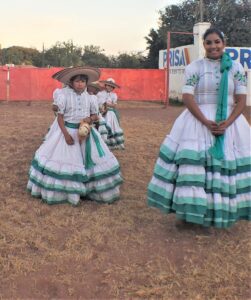
Photography: Patrick O’Heffernan.
The Escaramuza Pedagógica Las Potranquitas Ajijic trains many of the girls who go on to ride real horses in competitive Escaramuza performances at Charros in Chapala and other cities. The Ajijic Potranquitas team went to the first level of national competition last year with financial support from local doors and horse lovers. The public is welcome to observe the Wednesday night practice from the stands of Lienzo Charro, beginning at 6 pm.
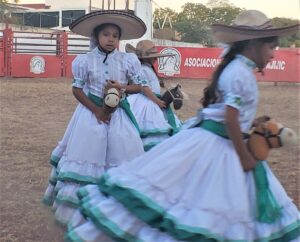
Photography: Patrick O’Heffernan.

Photography: Patrick O’Heffernan.
Santa Claus arrives on a motorcycle at Chapala Police Department
Photo: Patrick O’Heffernan
Patrick O’Heffernan, Ajijic. Santa and his elves arrived Saturday afternoon at the Chapala Police Department on motorcycles to distribute presents to over 40 children of Chapala’s police offices as part of a program launched by the Auxiliary of American Legion Post 7 and the Los Güeros Motorcycle Club of Lakeside, with involvement from the Anavets of Canada.
When Los Güeros club arrived with roaring pipes at the assembly yard of the Chapala Police Department, they were met by children, police officers, officials from the American Legion Auxiliary, Mayor Moises Anaya, and other dignitaries. The children were waiting patiently with their families at tables under special tents set up for the occasion.
Project Manager Gloria Allen of the Auxiliary served as Mistress of Ceremonies for the event, flanked by project volunteers Lenel Tamez, Loretta Pompeii Flick, and Irene Nottingham and officials from Chapala. Allen introduced the dignitaries, including Chapala Police Chief Moisés Torres Ramírez, each of whom thanked the police for their work and the participating organizations for their generosity.
“This is in gratitude for the work of the police in keeping us safe,” Allen told Laguna, noting that in her welcome speech, she said she worked closely with Olga Ramirez who “made this event possible.” The Auxiliary also collected funds and toys and provided candy at the event.
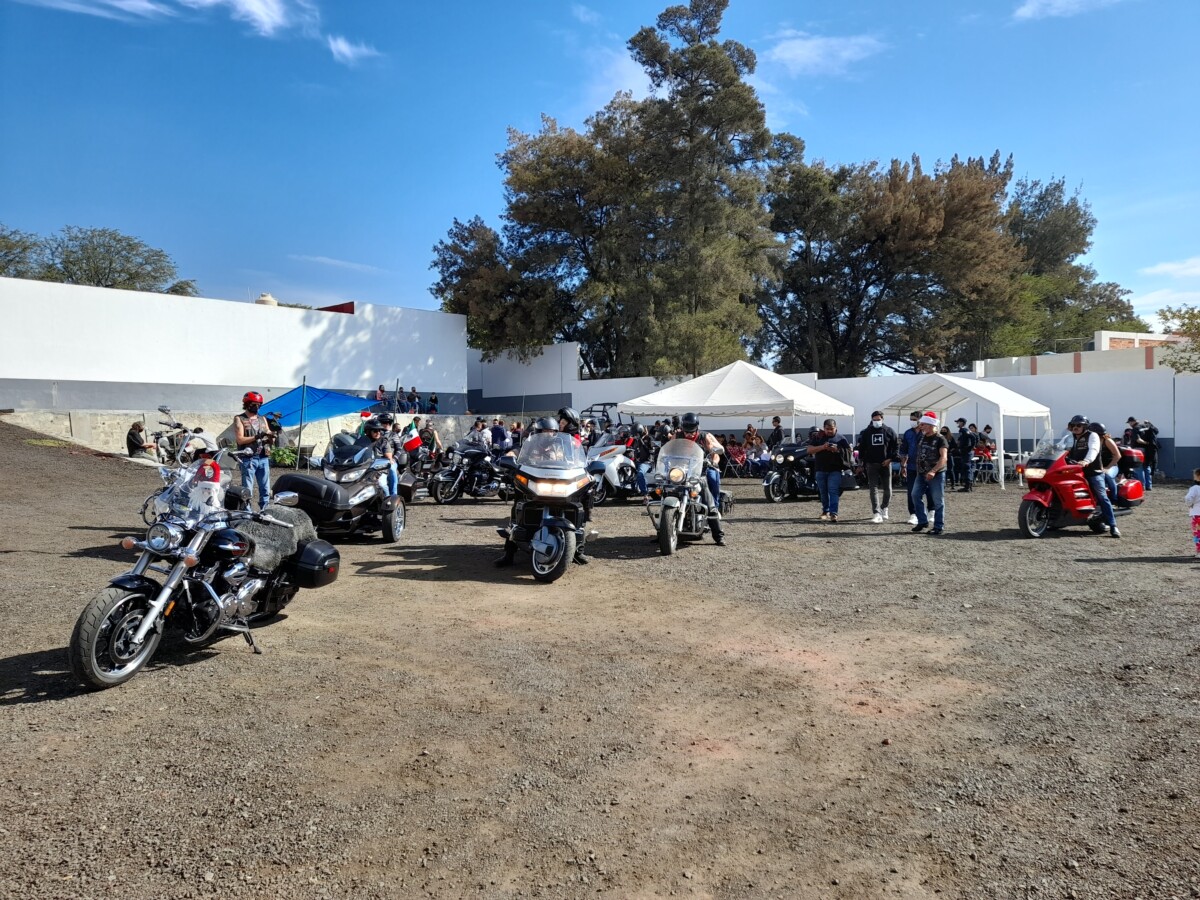
American Legion Post 7 Auxiliary, Los Gueros Motorcycle Club and Anavets distribute gifts and candy to the children of Chapala’s police to say “thank you for keeping us safe.”
This is the first year Allen has coordinated the gift distribution, which will also include the Chapala Bomberos next week and the Love in Action Children’s Home on Christmas Eve. The program started when Allen was contacted by the Los Gueros Toy Run and learned that they had collected toys but could not have their annual Toy Run to distribute gifts. Allen linked the volunteers of the Post 7 Auxiliary together with the Los Gueros and brought in Anavets to organize three distribution events, the first one with the children of the Police last Saturday.
“Cindy Bosch of the Los Gueros Motorcycle Club told me they had these toys but couldn’t distribute them, so we were delighted to put this together, especially since Post 7 has been involved in the Toy Run for 5 years, Allen told Laguna.
The Annual Los Gueros Motorcycle Club Toy Run is held to provide a good Christmas for the underpaid frontline public servants in Chapala, as well as other children whose families cannot afford presents.
The 35 to 40 children present were almost outnumbered by the motorcycles that roared into the Police Department’s assembly space, near Suriana Market in Chapala and they loved every minute of it, except for the speeches. They happily lined up with their parents to receive gifts and then went back to the table for a special lunch.
Jocotepec Ecology Director warns citizens not to buy puppies from posters on the street
Cortesía.
Miguel Cerna: Anonymous signs have been posted in the streets of Jocotepec offering newborn puppies for sale, an action prohibited by the Regulations for the Well-being and Dignified Treatment of Animals in Jocotepec.
The director of Ecology, Diego Palmeros Suárez, attributed the purchase and sale of dogs to the Christmas season, a time of year when many families give them away as pets; although he did not rule out the possibility of also using them for training fighting dogs.
Palmeros Suarez warned those involved that these actions are prohibited in the municipal regulations and that the sale of animals on the street was also illegal.
«The regulations do not allow you to do that (buying and selling. You need to be registered, in case of a kennel, you have to hand in all the papers, a veterinarian who is aware of them, etc.; besides explaining what they are going to be used for,» he said in an interview.
In addition, the Animal Welfare and Treatment Regulations of the Municipality of Jocotepec do not allow sales on streets, highways or any other location that does not have the corresponding permits.
Animal protection activists like non-Mexican association «Tails of Mexico» and Rescate Canino Jocotepec, asked people to remove the signs to stop the mistreatment and suffering of the puppies.
Another problem in the Christmas season is increase in the number of stray animals abandoned by their families so they can replace them replace them with puppies”, explained Diego Palmeros.
«The problem has grown a little lately, because of the season, people who want to remove an older dog so they pretend they lost it or that it ran away; the child becomes sad and the parents buy another one», he explained.
Added to the inhuman conditions in which the dogs are found in the streets, dog poisoning is another problem people need to be aware of due to the frequency with which it happens. The last dog poisoning was registered last December 7th in the center of the town, which, after hours of agony from the poison, the poisoned dog was put to sleep.
Diego Palmeros said that the poisoning of dogs is the result of a vicious circle that starts with a lack of education for the care of animals, so he invited the population to adopt to prevent the problem of street fauna from getting worse.
» It’s like a chain: I abandon a dog, it is wandering the streets, it acts according to its instincts to look for food; it makes garbage, people get angry, kick them and even poison them,» he said.
Translated by patrick o’heffernan
Opinion column In English
Patrick O’Heffernan
In the late 1960s, after a century of complaints, the governors of the North American states of California and Nevada approved a bi-state compact to protect Lake Tahoe, the largest freshwater lake west of the Rocky Mountains. They created the Tahoe Regional Planning Agency to oversee development around Lake Tahoe, which is slightly smaller than Lake Chapala. TRPA was approved by the United States Congress and tasked with creating a plan with the local cities and agencies. Today that plan is enforced by TRPA and federal, state, and local governments that strictly regulate development.
Lake Chapala is now facing the same kind of crisis Lake Tahoe faced 60 years ago. But Lake Chapala is far more vital to the people of its surrounding states and towns than the mostly recreational Lake Tahoe is. Lake Chapala, Mexico’s largest natural lake, is the linchpin of a gigantic eco and economic system, the River Lerma-Lake Chapala drainage basin, which includes more than 8 million people, 3,500 diverse industries, 750,000 hectares of irrigated farmland and 14 cities with populations in excess of 100,000. And it is under deadly stress.
Lake Chapala is beset by pesticide runoff, dehydration, algal blooms, high phosphorus levels, heavy metals, aquatic weeds, sewage, and loss of shoreline. Driving much of this is illegal appropriation of the Federal shoreline and water – illegal dumping in Jocotepec for merry-go-rounds, illegal building on the beach in Ajijic by restaurants, illegal filling for farms in Riberas, garbage dumped in the lake from west Ajijic to Chapala, illegal fishermen, untreated sewage – they are all killing the lake.
Why? Because there is little to no enforcement.
Chapala, Jocotepec, Jalisco and the Federal governments all have agencies whose responsibility is to protect the Lake we all love, the largest lake in Mexico. And they all fail.

The problem is not weak laws, or lack of scientific expertise, or ignorance of the problems or corrupt or underperforming officials. It is lack of political will.
As far back as 1997, there was call for international pressure on Mexico, similar to the Canadian lobbying that led to the conservation of Monarch butterfly habitat, to detail the Lake’s problems and develop a multi-state, regional-national effort to save the Lake. But this takes will and money. The agencies whose job it is to protect the Lake are underfunded, overworked and undercoordinated. And that is the failure, not of the good people who manage and staff the agencies, but of political will to give them the authority and resource they need to succeed.
The Lakeshore is Federal, but the local office of the Federal agency is understaffed – so much so that when Chapala Mayor Moisés Anaya Aguilar took its director on a tour of illegal appropriation of Federal shoreline he was told that there are too many problems and too few resources to do much. Local agencies have no authority to act and Federal agencies have no capability to act. And AMLO has other priorities.
Some progress is being made, mostly in uncoordinated fits and starts. There is a move to devolve enforcement authority to the local governments. But that will be a wack-a-mole game that ignores the major problems and will meet fierce pushback. Without a regional plan, progress monitoring, funds from the Federal government for enforcement officers and equipment, sewage treatment plants, shoreline rehabilitation, and prosecution, it will fail.
Which is where political will comes in. The lake can be protected if the people demand it. In this week’s Laguna, reporter Sofia Medeles chronicles how the online complaints of a citizen finally prodded coordinated governmental action to stop illegal beach appropriation by the Maria Isabel restaurant in Ajijic. It will take many –thousands – of citizen complaints to get the sewage treatment plants built, stop the pesticide runoff, prosecute the lakeshore invasions, and regulate fishing and tourism to save the Lake. And it may take international pressure to get the Federal government to generously fund state and local agencies and give them the authority to get the job done.
The Tahoe Regional Planning Agency could be a model for Lake Chapala’s future. A scientifically-based plan with clear progress benchmarks backed up by determination in state, federal and local governments overcame lethargy and opposition in Lake Tahoe. It might work here. But it took the people of California and Nevada 100 years of complaining, pressuring and voting to create the political will. Lake Chapala does not have 100 years
Music Sin Fronteras radio is coming to Semanario Laguna.
Foto: Patrick O’Heffernan.
Ajijic’s own global music radio program, Music Sin Fronteras, hosted by music critic and writer for the English page on Semanario Laguna , Patrick O’Heffernan, will now be available at semanariolaguna.com/. Each week, Laguna readers will get an advance peek at the upcoming guest and a phone number they can use to call in live on the show.
Covering every facet of popular music, Program Host Patrick interviews artists and plays cuts from their albums, EP’s and singles. He talks with artists from the US, Latin America and sometimes even Europe. All interviews are in English, although the song lyrics are often Spanish or Spanglish.
Host Patrick focuses on rising singers and bands, local talent in Lakeside, and artists who are at the cusp of going big time, with the occasional famous guest. While his specialty is fusion music –Latino/gringo– he plays virtually anything you can dance to from cumbia to hip hop to blues and jazz and rock and even folk and electronica. He also covers local live music – it’s coming back!– and the FIMPRO Latin Music Convention in Guadalajara, the Latin Alternative Music Conference in New York, and the Latin Grammys.
On the air for seven years in Los Angeles as Music Friday Live radio, Host Patrick changed the name to Music Sin Fronteras when he moved to Mexico last year and set up a broadcast studio in downtown Ajijic. He broadcasts every Friday at 1 pm CT on stations in the US and the UK. Semanario Laguna readers will get the broadcast link, the weekly lineup, and the talk line to call in and talk with the artists.
© 2016. Todos los derechos reservados. Semanario de la Ribera de Chapala



